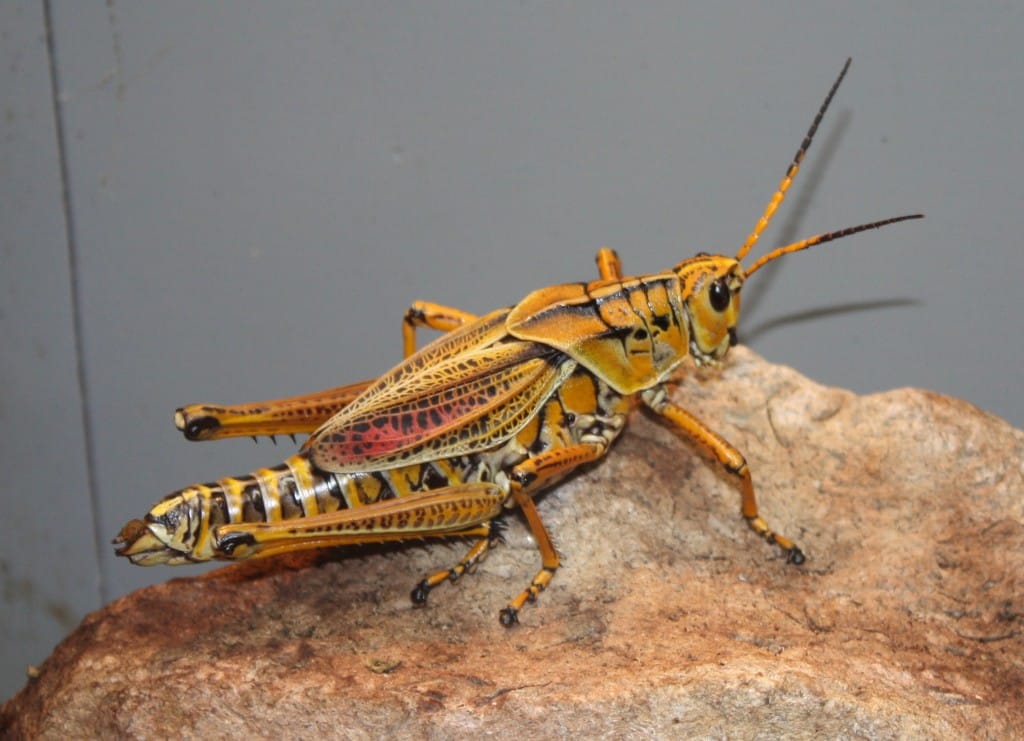Source(s): Jennifer Davidson
The colorful Eastern Lubber Grasshopper is one of the most common grasshoppers in Georgia. The Eastern Lubber grasshopper sometimes occurs in large enough numbers in Georgia to cause damage to plants in the garden and landscape.
Description
A large, distinctive grasshopper, the Eastern Lubber, or Georgia Thumper (Romalea microptera (= guttata) can be easily identified in the landscape. The adults are black, red, and yellow but colors vary depending on the phase of growth. The fully grown size of the females and males are about 6.0 and 8.0cm, respectively. The adult winds are yellow with black dots and are half the length of the abdomen, therefore, useless for long-distance flying.
Lifecycle
Lubbers produce one generation per year, laying masses of about 50 eggs in soil excavations about 5 cm deep. Each female lays one to three separate masses of eggs around May in Georgia. The insect goes through incomplete metamorphosis, growing through successive stages after molting, called instars. Five juvenile instars, each typically lasting 15-20 days occur. Juveniles (nymphs) stay together around a safe food source, until molting again. In the fall, the females insert their eggs to overwinter in the soil.
Defensive Abilities
The Eastern lubber grasshopper uses its bright color to warn predators. The lubber contains toxic substances known to induce sickness or death in birds and mammals. The lubber can secrete a foamy spray from its body, while hissing loudly. They can also vomit plant material to deter predators. This is known as “tobacco” spit.
Control
Mechanical methods, such as hand-picking or shoe-stomping, are the primary control of these grasshoppers, especially if allowed to grow to adult size. Chemical control is difficult as the adult exoskeleton is difficult to penetrate.
Resource(s): Insect Pests of Ornamental Plants
Reviewer(s):
- Ellen Bauske, Program Coordinator, UGA Center for Urban Agriculture, The University of Georgia College of Agricultural and Environmental Sciences.
- Randy Drinkard, Technical Writer, UGA Center for Urban Agriculture, The University of Georgia College of Agricultural and Environmental Sciences.
Center Publication Number: 256
